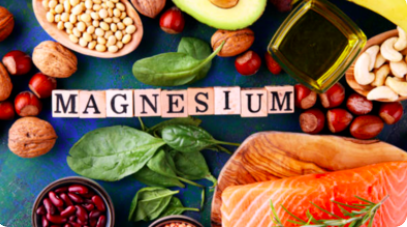Health
How to lose weight fast 7 Things You Need To Know

Last Updated on November 10, 2023 by Nurse Vicky
How to Lose Weight Fast: 7 Things You Need to Know
Losing weight is a journey that many embark on, but finding the right path can be challenging. In a world filled with fitness fads and conflicting advice, it’s crucial to navigate the weight loss landscape with knowledge and a solid plan. Here are seven key things you need to know to shed those extra pounds and achieve your weight loss goals.
1. Understanding Your Body’s Basal Metabolic Rate (BMR)
To kickstart your weight loss journey, it’s essential to comprehend your body’s Basal Metabolic Rate (BMR). BMR represents the number of calories your body needs at rest. Knowing this baseline allows you to tailor your diet and exercise routine for effective weight loss. Calculate your BMR using online tools or consult with a nutritionist for personalized insights.
2. The Power of a Balanced Diet
Fad diets may promise quick results, but a sustainable and healthy weight loss plan involves a balanced diet. Ensure your meals include a mix of lean proteins, whole grains, fruits, and vegetables. Avoid processed foods and prioritize nutrient-dense choices to fuel your body while cutting calories.
3. High-Intensity Interval Training (HIIT) for Efficient Workouts
When it comes to workouts, time efficiency matters. Incorporate High-Intensity Interval Training (HIIT) into your exercise routine. HIIT involves short bursts of intense activity followed by brief rest periods, maximizing calorie burn and promoting fat loss. This approach is ideal for those with busy schedules.
4. Adequate Hydration and Its Role in Weight Loss
Often underestimated, hydration plays a significant role in weight loss. Drinking water before meals can help control appetite, leading to reduced calorie intake. Aim for at least eight glasses of water a day, and consider incorporating herbal teas for added flavor without extra calories.
5. Sleep, Stress, and Weight Loss Connections
Quality sleep and stress management are crucial factors in your weight loss journey. Lack of sleep disrupts hormones that regulate hunger, leading to increased cravings. Additionally, high stress levels trigger the release of cortisol, a hormone linked to abdominal fat storage. Prioritize sleep and adopt stress-reducing practices such as meditation or yoga for holistic well-being.
6. The Importance of Portion Control
Understanding portion sizes is key to managing caloric intake. Invest in smaller plates to visually trick your brain into feeling satisfied with smaller portions. Chew your food slowly, allowing your body to signal fullness, preventing overeating.
7. Consistency and Patience: The Weight Loss Virtues
Rome wasn’t built in a day, and neither is a healthy body. Weight loss is a gradual process that requires consistency and patience. Celebrate small victories, stay committed to your plan, and understand that sustainable changes take time.
Conclusion
Embarking on a weight loss journey requires a holistic approach that combines nutritional awareness, effective workouts, and lifestyle adjustments. By understanding your body’s unique needs and adopting healthy habits, you can achieve lasting results. Remember, there’s no one-size-fits-all solution, so tailor your approach to fit your individual preferences and lifestyle.
Health
7 Fascinating Facts About Magnesium You Probably Didn’t Know

7 Fascinating Facts About Magnesium You Probably Didn’t Know
Magnesium is one of the most essential minerals for our health, yet many people are unaware of its significance.
This vital nutrient plays a crucial role in numerous bodily functions, from energy production to maintaining a healthy heart.
In this article, we will delve into seven intriguing facts about magnesium that may surprise you and help you appreciate its importance in your daily life.
What is Magnesium?
Magnesium is a naturally occurring mineral found in various foods and is vital for human health.
It is the fourth most abundant mineral in the body and is involved in over 300 biochemical reactions.
Magnesium contributes to nerve function, muscle contraction, blood sugar control, and blood pressure regulation.
It can be obtained from various dietary sources, including leafy greens, nuts, seeds, whole grains, and legumes.
1. Magnesium is Involved in Energy Production
Did you know that magnesium is essential for converting food into energy? This mineral plays a critical role in the activation of ATP (adenosine triphosphate), the energy currency of our cells.
Without sufficient magnesium, your body struggles to produce energy effectively, which can lead to feelings of fatigue and weakness.
How Does It Work?
ATP production occurs in the mitochondria, often referred to as the powerhouse of the cell.
Magnesium helps activate enzymes involved in this energy production process, ensuring that your body has enough energy to perform daily activities.
2. A Key Player in Bone Health
Magnesium is vital for maintaining strong and healthy bones. Approximately 60% of the magnesium in your body is stored in your bones.
It contributes to bone density and strength by regulating calcium levels in the body, which is crucial for bone formation.
The Calcium Connection
Calcium is often touted as the primary mineral for bone health, but magnesium plays an equally important role.
An imbalance of these two minerals can lead to bone-related issues such as osteoporosis.
Ensuring adequate magnesium intake is essential for maintaining optimal bone health.
3. Supports Heart Health
Magnesium is a crucial mineral for cardiovascular health. It helps maintain normal heart rhythms and can reduce the risk of heart disease.
Adequate magnesium levels are associated with lower blood pressure and reduced risk of heart attacks.
Regulation of Blood Pressure
Magnesium helps relax blood vessels, which can lead to lower blood pressure.
Studies have shown that individuals with higher magnesium intake tend to have better cardiovascular health. Including magnesium-rich foods in your diet can be an effective strategy for supporting heart health.
4. Magnesium and Mental Health
Emerging research suggests a strong link between magnesium levels and mental health.
Magnesium plays a role in regulating neurotransmitters, which are essential for mood stabilization.
Low magnesium levels have been associated with an increased risk of depression and anxiety.
Cognitive Function
Magnesium may also enhance cognitive function. Studies have indicated that adequate magnesium intake can improve memory and learning abilities.
This mineral is essential for brain health, making it vital for overall mental well-being.
5. Magnesium Deficiency is Common
Despite its importance, magnesium deficiency is surprisingly common.
Factors such as poor diet, chronic stress, and certain medical conditions can lead to low magnesium levels.
Symptoms of magnesium deficiency can include muscle cramps, fatigue, and irritability.
Risk Factors for Deficiency
Certain populations are at a higher risk for magnesium deficiency, including the elderly, those with gastrointestinal diseases, and individuals who consume a diet low in whole foods.
It’s essential to recognize the signs of deficiency and consider increasing your magnesium intake through diet or supplements if necessary.
6. Natural Relaxant
Magnesium is often referred to as a natural relaxant due to its calming effects on the nervous system.
It helps regulate cortisol levels (the stress hormone) and promotes relaxation, making it beneficial for those dealing with anxiety and stress.
Improving Sleep Quality
In addition to its relaxing properties, magnesium can improve sleep quality.
Many people find that magnesium supplements help them fall asleep faster and stay asleep longer, making it a popular choice for those struggling with insomnia.
7. Magnesium in Sports Performance
Athletes and active individuals often benefit from magnesium’s role in muscle function and recovery.
Magnesium helps prevent muscle cramps and can aid in post-exercise recovery by reducing inflammation and promoting relaxation.
Enhancing Athletic Performance
Research has shown that adequate magnesium levels can enhance athletic performance.
It is involved in muscle contraction and relaxation, making it essential for peak performance during exercise.
Conclusion
Magnesium is a powerhouse mineral that plays an essential role in various bodily functions. From supporting energy production to promoting heart health and mental well-being, its importance cannot be overstated.
Ensuring adequate magnesium intake through a balanced diet rich in whole foods can significantly enhance your overall health and quality of life.
If you suspect you may be deficient in magnesium, consider consulting with a healthcare provider to assess your levels and discuss dietary changes or supplements that may be beneficial.
FAQs about Magnesium
1. What are the best dietary sources of magnesium?
The best sources of magnesium include leafy green vegetables (like spinach), nuts (especially almonds and cashews), seeds (such as pumpkin seeds), whole grains (like brown rice and quinoa), and legumes (like beans and lentils).
2. How much magnesium do I need daily?
The recommended daily intake of magnesium varies by age and gender. Generally, adult men should aim for about 400-420 mg per day, while adult women should aim for about 310-320 mg.
3. Can I take magnesium supplements?
Yes, magnesium supplements are available and can be beneficial, especially for individuals who may not get enough from their diet. However, it’s essential to consult with a healthcare provider before starting any supplement regimen.
4. What are the symptoms of magnesium deficiency?
Symptoms of magnesium deficiency can include muscle cramps, fatigue, weakness, irritability, and irregular heart rhythms. If you experience these symptoms, consult a healthcare professional.
5. Is it possible to get too much magnesium?
Yes, while magnesium from food sources is generally safe, excessive supplementation can lead to toxicity, causing symptoms like diarrhea, nausea, and abdominal cramping. Always consult a healthcare provider before increasing your magnesium intake significantly.
References:
Health
Whooping Cough: Understanding Its Resurgence and Prevention

Health
The Power of Beans: Why This Superfood is a Nutritional Treasure
-

 Trending Stories1 year ago
Trending Stories1 year agoCDC: 1 in 4 Americans Still COVID-Free by End of 2022
-

 Health5 years ago
Health5 years agoMeghan Trainor Shares Motivational New Song ‘Blink’
-

 Health6 months ago
Health6 months agoHow Do Pawpaw Seeds Support Cardiovascular Health?
-

 Health2 years ago
Health2 years agoHow Long Does Monkey Pox Last Before It Surfaces in the Body?
-

 Health3 years ago
Health3 years agoWhat Causes Swollen Body? Understanding Edema and its Triggers
-

 Health3 years ago
Health3 years agoNutrition and the Importance of a Fitness Program – 3 Things to Know
-

 Health3 years ago
Health3 years ago5 Weird Reasons Why Pimples Disappear After Marriage
-

 Health2 years ago
Health2 years agoHealth Benefits Of Pawpaw Seed? 7 Things To Know






